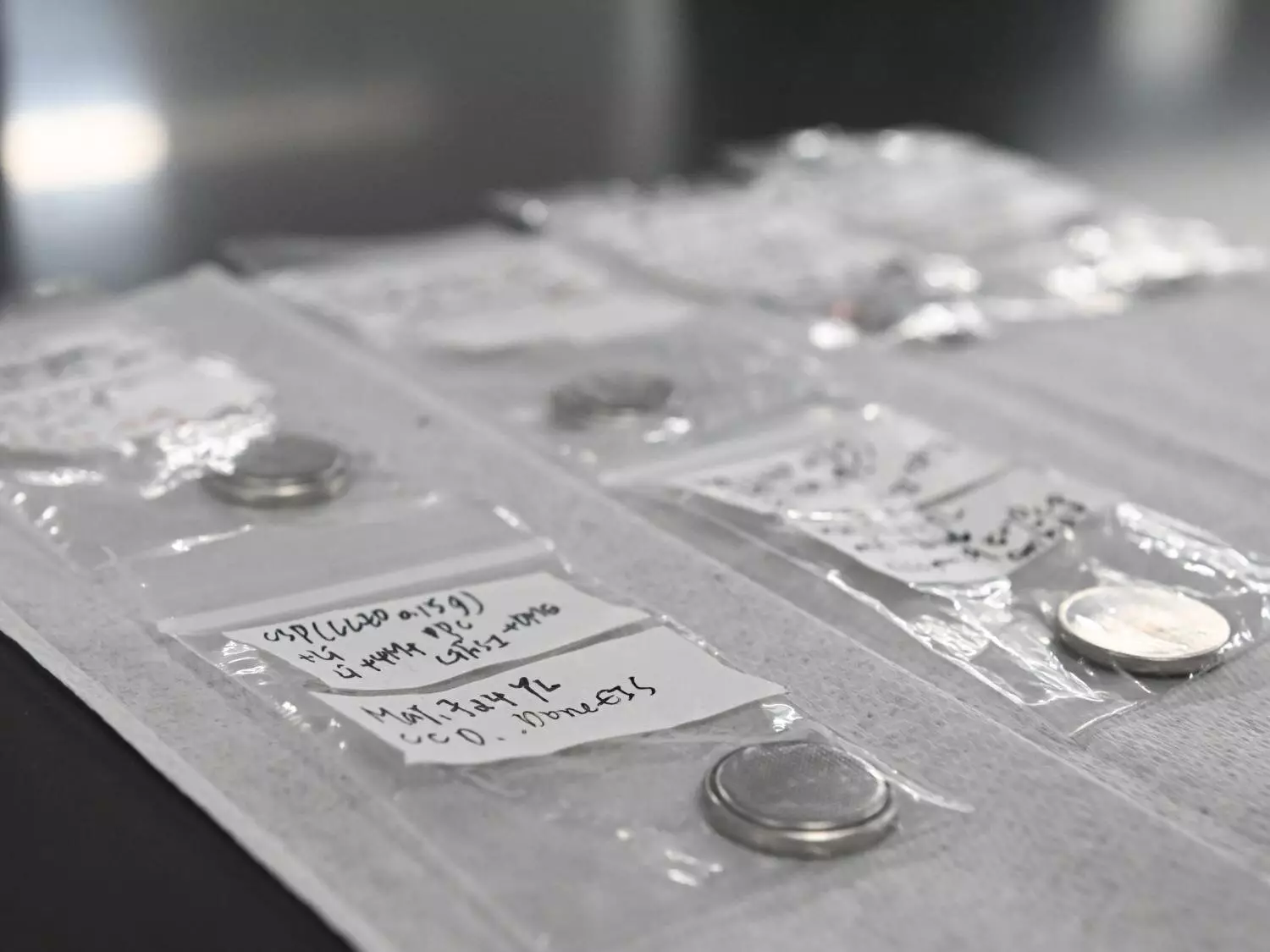

Traditional lithium-ion batteries have revolutionized the way we power our consumer electronics, but they come with their own set of environmental challenges. These batteries, while efficient, are flammable and not easily recyclable. Current recycling methods focus primarily on recovering metals from the cathodes, leaving the rest of the components to go to waste.
A team of researchers at Penn State, led by Enrique Gomez, has developed a groundbreaking solution to the recycling challenges posed by solid-state lithium batteries. By redesigning the battery components, they have created a battery that can be easily recycled in its entirety. Their research, published in ACS Energy Letters, showcases the potential for a more sustainable approach to battery recycling.
The key to the researchers’ innovative approach lies in the design of the solid-state lithium battery components. By inserting polymer layers at specific interfaces within the battery, they were able to prevent the electrode and electrolyte from mixing during the recycling process. This simple design change allows for easy separation of the battery components, making recycling more efficient and effective.
Once the components have been successfully separated, the researchers utilized cold sintering to reconstruct the battery. Cold sintering is a process that allows for the combination of recovered metals and electrodes at low temperatures through applied pressure using solvents. This method, developed in 2016, has proven to be effective in creating a composite material from recycled battery components.
After reconstructing the battery using cold sintering, the researchers tested its performance. The reconstructed battery achieved between 92.5% and 93.8% of its original discharge capacity, showcasing the potential for recycled solid-state lithium batteries to perform as well as new batteries. This innovative approach not only reduces waste but also highlights the sustainability of solid-state battery technology.
While the commercialization of solid-state lithium batteries is still in its early stages, the research conducted by the Penn State team provides important insights and ideas for designing recyclable versions of these batteries. By reimagining the design and recycling process of solid-state batteries, we can move towards a more sustainable future for energy storage technology.
The work done by the Penn State researchers represents a major step forward in the quest for sustainable battery technology. By focusing on the end-of-life of solid-state lithium batteries, they have created a solution that not only addresses environmental concerns but also showcases the potential for a circular economy within the battery industry. With continued research and development in this area, we can look forward to a future where rechargeable batteries are not only powerful and efficient but also environmentally friendly and easy to recycle.
In the realm of software development, the ability to swiftly and accurately address bugs is…
The realm of quantum computing and communication is not just an abstract dream anymore; it…
In a remarkable leap for the field of material science, a collaborative research initiative has…
Throughout Earth's vast history, our planet has endured five major mass extinction events that reshaped…
Rainfall is a vital element of our planet’s hydrological cycle, yet many aspects of its…
On a night when the universe aligns, a mesmerizing phenomenon awaits: the appearance of the…
This website uses cookies.